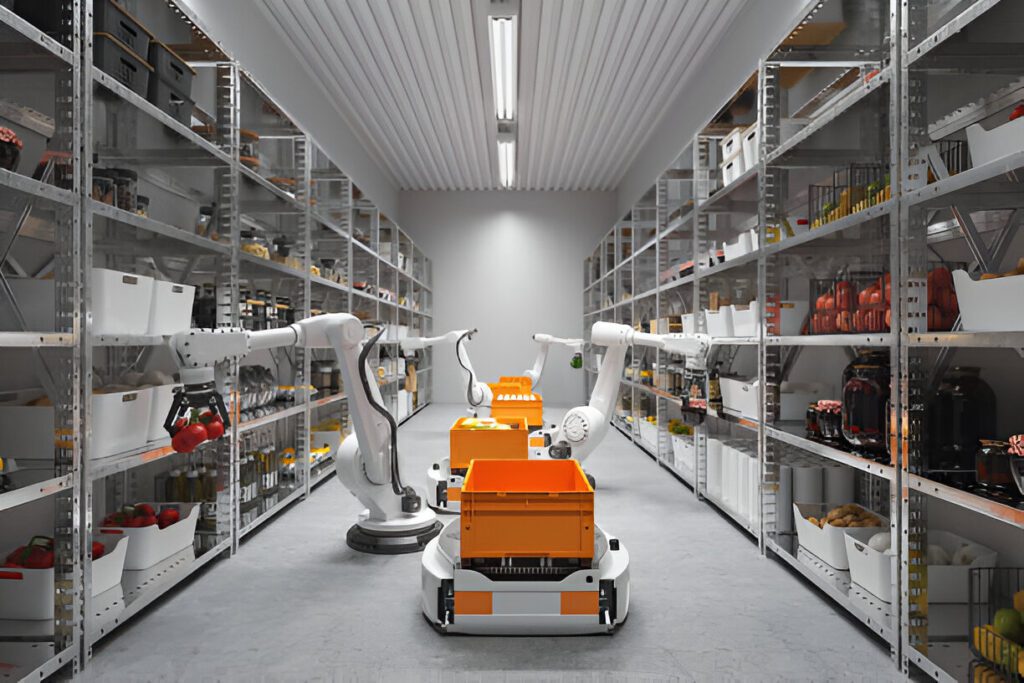
The retail landscape has undergone a dramatic transformation, fueled by digital innovation. While online giants have captured headlines, brick-and-mortar stores, particularly supermarkets, have embraced technology to enhance customer experience and optimize operations. From self-checkout counters to smart shelves, supermarkets have become increasingly digitized.
Now, the spotlight is on Artificial Intelligence (AI), poised to revolutionize the grocery industry. With the potential to boost efficiency, personalize shopping, and optimize pricing, AI is set to reshape the supermarket experience. A recent report by Grocery Doppio predicts that AI could add a staggering $113 billion to the grocery industry by 2025. This comes as a boon to an industry grappling with inflation, labor shortages, and supply chain challenges.
Personalized Shopping: A Key to Customer Loyalty
In today’s competitive retail environment, personalization is paramount. Understanding individual preferences and tailoring experiences accordingly is the key to building loyal customer relationships. AI excels at this, analyzing vast amounts of data to uncover hidden shopping patterns. By examining purchase history, browsing behavior, and customer feedback, AI can create highly personalized shopping experiences.
For instance, AI can curate tailored shopping lists based on a customer’s dietary preferences, household size, and past purchases. Imagine receiving a digital shopping list suggesting items based on your family’s needs, or being offered personalized discounts on products you frequently buy. These small touches can significantly enhance customer satisfaction and loyalty.
Dynamic Pricing: Balancing Profitability and Sustainability
Dynamic pricing, once a novel concept, is now gaining traction in supermarkets. With AI at the helm, this strategy can optimize prices in real-time, considering factors like demand, supply, expiration dates, and competitor pricing. The result is a more efficient pricing structure that maximizes profits while reducing waste.
By intelligently adjusting prices based on product lifecycle and market conditions, supermarkets can prevent items from going to waste and improve their bottom line. AI-driven dynamic pricing is not just about maximizing profits; it’s also about sustainability. By reducing food waste, supermarkets contribute to a greener future.
AI-Powered Shelf Management: Ensuring Product Availability
Maintaining well-stocked and organized shelves is crucial for a positive shopping experience. However, it’s a task that often consumes valuable store resources. AI-powered shelf monitoring systems are changing the game. Equipped with computer vision technology, these systems continuously scan shelves to track inventory levels, product placement, and sales patterns.
Store managers receive real-time alerts about out-of-stock items, misplaced products, and product demand. This data-driven approach enables optimized stocking strategies, reducing the chances of empty shelves and ensuring customers find what they need.
The Future of Grocery Shopping
AI is transforming the supermarket experience, making it more convenient, efficient, and sustainable. By leveraging AI, grocers can unlock new opportunities, improve profitability, and delight customers. As technology continues to advance, we can expect even more innovative AI applications to emerge in the grocery industry.
The future of grocery shopping is bright, with AI as the driving force. As we step into the supermarket aisles, we can look forward to a shopping experience that is not only convenient but also tailored to our individual preferences.

